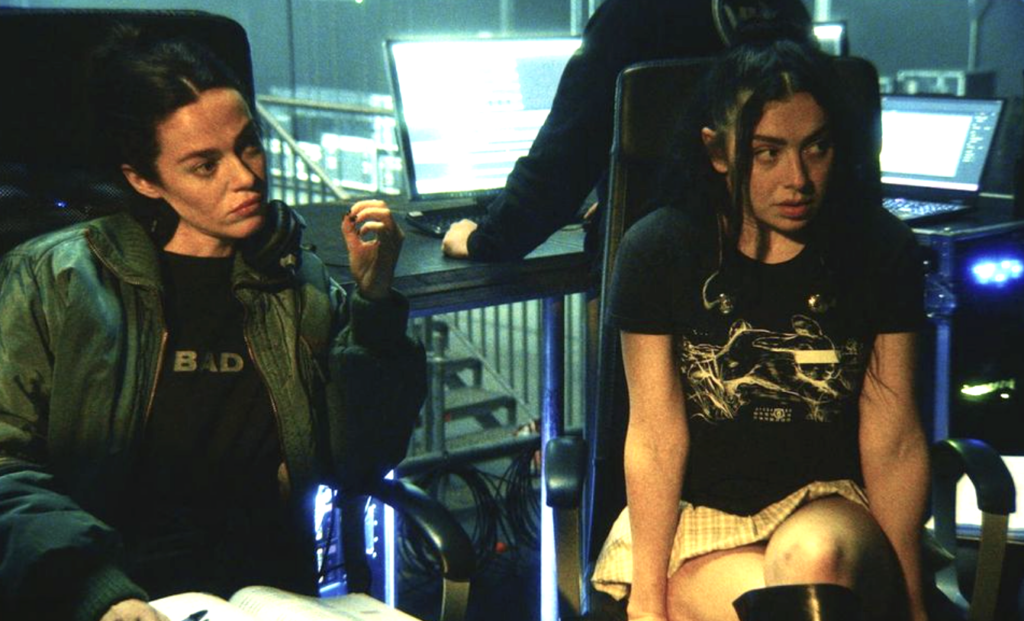The Basha: good, cheap Middle Eastern food in OP


I like restaurants that pretend to have some connection to royalty: Burger King, Princess Gardens, Dairy Queen. One aspires to make even a soft-serve cone a luxurious experience. This city’s Middle Eastern restaurants tend to prefer biblical and geographical references to regal words. But newly minted restaurateurs Mohammed Mosley and Nader Shehata like to think big, so they named their six-week-old Overland Park restaurant the Basha.
“Basha is a title given to someone with high power and authority, like a duke or a lord,” says Mosley, a native of Jordan. Basha is also the traditional Arabic pronunciation of the Turkish word pasha, a high-ranking title for diplomats and dignitaries during the Ottoman Empire (sometimes spelled bashaw). All of which is to say Mosley and Nader want their patrons to feel, if not like royalty, at least like VIPs.
The tiled dining room, painted a glossy shade of café au lait, is more comfortable than it is exclusive, with high-backed booths and picture windows that look out on the parking lot it shares with Buffalo Wild Wings instead of, say, the pyramids. And it’s not a place where you can drink like a king; Mosley and Nader don’t have a liquor license and probably won’t get one. (Alcohol is prohibited by their religious customs.) The Basha instead emphasizes a selection of hot teas, served in delicate glass cups. The Turkish coffee here is thick and sweet, and Mosley is also proud of his restaurant’s signature cold drink, a ruby-red concoction of lemon juice and hibiscus flowers with an unsubtle, Kool-Aid-like sweetness.
“It’s a potent aphrodisiac,” whispered one of my dining companions. She went on to point out that the kefta kebabs I ordered for dinner reminded her of certain pornographic mosaics in Pompeii. I had the waiter take her juice away.
That night, we started with the modestly priced sampler plate. Here, that means a generous helping of exceptionally creamy hummus, a smoky roasted-eggplant baba ghanoush, grape leaves stuffed with rice and herbs and lamb, falafel, and triangles of fresh pita bread (which could use a short toss on the grill). After that, it’s almost indulgent to order an entrée. And you may need help wiping away the memory of the sampler’s falafel, which lacks visual appeal. Instead of crispy chickpea-batter patties in the shape of a ball or a croquette, the Basha’s falafel (which, when I tried it, was a bit over-fried) consists of pucks resembling those little compressed peat wafers that expand when you add water.
But I say it’s unfair to judge the cuisine at a Middle Eastern restaurant only by the quality of its falafel. That dish, after all, has more in common with the lowly french fry than with the rest of the menu. Dinners here, which are ridiculously inexpensive, include a very simple salad of chopped lettuce, cucumbers and tomato in an equally uncomplicated dressing of olive oil, lemon juice, sumac and mint. It’s a pleasant prelude to an array of dishes that predominantly spotlight meat or chicken and are, for the most part, beautifully prepared. The grilled salmon at Basha is one of the prettiest, tastiest incarnations of this pink-fleshed fish in the metro. Before grilling, Mosley brushes it with lemon juice, olive oil and his own mix of seasonings (I tasted cumin, cinnamon, ginger, onion and sumac) and a delicate peppery marinade.
The kitchen also does an impressive job with standards of the Americanized Middle Eastern menu: a very nice, gristle-free rotisserie gyro plate and a spiced, marinated chicken (or beef) shawarma. I preferred the beef kebabs to those with ground lamb.
Mosley calls his baked pasta creation — a cross between Greek moussaka and Italian lasagna — Basha-mel. It’s a slab of layered penne with ground beef tucked under a creamy blanket of fluffy béchamel sauce. The result is sort of a pallid moussaka — likable but forgettable. Pasta is also an ingredient in one of the two meatless entrées here, kushari: a construction of macaroni, rice, lentils and chickpeas in tomato sauce. The other alternative is the “veggie plate,” which is the same thing as the sampler appetizer plate but more expensive and without lamb in the grape leaves.
The surprise here, though, turns out to be the lamb chops, priced so inexpensively that I cringed at first, imagining puny ribs. The chops here aren’t brawny but they are meaty, delightfully tender and fragrant with cardamom, cumin and pepper. It’s a standout on an already affordable menu, maybe the best deal in the place.
Mosley and Nader insist that they have the largest dessert selection — five choices — of any Middle Eastern boîte in the city. “Our baklava comes from Michigan,” Mosley says, “but we make everything else in our kitchen.” The “everything else” includes a milky rice pudding; a square of sweet cheese wrapped in shredded phyllo pastry called kunafa; and Mosley’s favorite, Lebanese nights, which is a sumptuous choice if you like old-fashioned boiled puddings. The Basha version is cooled into a dense rectangle swathed in heavy cream and sprinkled with crushed pistachios. It isn’t a particularly sweet delicacy, so it’s very good with a cup of the Turkish coffee, which here rages with sugar.
Neither Mosley nor Nader has much restaurant experience, but opening the Basha was their dream. And America is the land of dreams, right? They seem to be on the right track. The kitchen is well-paced and efficient, the servers are very young but not clueless, and — with the exception of that prefab falafel — everything I tried here was well-prepared and delicious. I don’t know if I felt like a basha — or even a pasha — while eating at this new restaurant, but that wasn’t for want of congeniality on the Basha’s part.
And my dining companion on that first visit did, in fact, come away with a certain imperial air. “I really did feel like a queen,” she told me as we left.
No more hibiscus juice for her.




